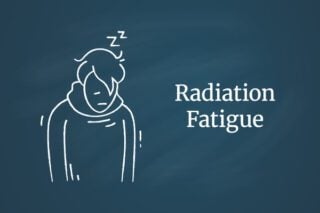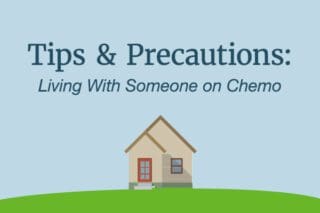
Fatigue is one of the most common side effects of cancer treatment. It can affect people with nearly any type of cancer, and it occurs more often with some therapies than others. Radiation treatments have some of the highest rates of fatigue among cancer therapies.
Lasting tiredness may seem like a mild side effect of radiation treatment. But patients find this type of fatigue quite disturbing. Their distress likely stems from the consequences of exhaustion. For example, cancer-related fatigue can make daily functions a challenge. This may contribute to mental and emotional tiredness, adding to the problem.
The prospect of RIF might seem daunting, but knowing more about it may help. Understanding the usual course of RIF can give patients and caregivers an idea of what to expect. And learning about risk factors tied to severe RIF can help patients take steps to reduce their risk.
Why Does Radiation Cause Fatigue?
Radiation causes fatigue by damaging healthy cells, even though it targets tumors. It can kill red blood cells, making it harder for blood to carry oxygen throughout the body. Radiation may also damage the power plant inside cells, effectively making them run on a low battery. For many patients, these changes can be temporary, but fatigue may persist long-term for others.
Risk Factors for Radiation Fatigue
Research indicates a few factors may increase a person’s risk of radiation fatigue:
- Distance to care: Patients who commute long distances to cancer treatment may be more likely to get RIF.
- Existing fatigue: Patients who felt exhausted before diagnosis may have an elevated risk of RIF.
- Increasing age: Older patients may have a higher risk of RIF than younger ones.
- Radiation volume: The amount of tissue targeted by radiation can affect RIF. Radiation of a larger tumor may have a higher risk of RIF versus a smaller tumor.
- Smoking: Smokers are more likely to experience RIF than non-smokers.
Patients cannot control many of the factors above. But they can try to prioritize getting high-quality care as close to home as possible. They can also consider quitting smoking. Cancer patients hoping to cut their risk of RIF should discuss it with their doctors.
How Long Does Radiation Fatigue Last?
The duration of radiation fatigue depends on patient factors and treatment details. For many patients, RIF starts gradually decreasing about 6 weeks after therapy ends. For some, energy levels return to pre-treatment levels within 1-2 months. But RIF may last 5 years or more for about ⅓ of patients.
Fatigue levels and time spans can differ for each person. But oncologists can explain options for combatting any amount of radiation fatigue. Research shows existing strategies can help many patients struggling with RIF.
Recovering From Radiation Fatigue
There is no cure for radiation fatigue at this time. But doctors may recommend certain prescription drugs, exercises and therapy to treat RIF. Patients and doctors can discuss these approaches to find the best one for each person.
Many studies point out the benefits of exercise for reducing cancer fatigue. And some research suggests just boosting activity can help reduce tiredness during radiotherapy. Among the best remedies so far are simple, accessible types of exercise.
Helpful activities include weight training, mind-body approaches and aerobic exercise. Even regular walks – around the block or the living room – may reduce fatigue. Patients can discuss these options with their doctors. Together, they can work toward a swift recovery from radiation fatigue.




